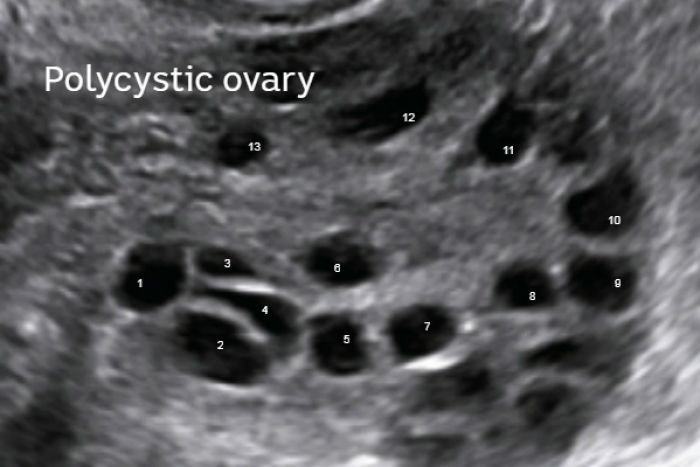PCOS and your fertility (part 1 of 2)
PCOS. It’s a big topic, so this is part one of two. In this article you’ll learn
PCOS - the 101 level breakdown
how to make sure you have a correct diagnosis
the 3 main areas of concern regarding fertility.
Let’s get to it.
Why the nomenclature sucks
The name ‘PolyCystic Ovary Syndrome’ is hella misleading. PCOS isn’t an ovarian condition - the ovaries are just a victim of a funky metabolic, HPO-axis interplay.
And those ‘cysts’ on polycystic ovaries? Not cysts - They’re lots of immature follicles, and importantly, multiple follicles are not a defining characteristic for the diagnosis of PCOS.
If diagnosis isn’t about ovaries - how is it diagnosed?
The best way to diagnose PCOS is under the guidance of a special interest GP or OB/GYN who uses the 2003 Rotterdam Criteria:
2 of the following, plus exclusion of any other condition that could be driving the signs and symptoms:
Irregular or no cycles, that’s eight or fewer periods per year, or cycles longer than 35 days and shorter than 21 days.
High androgens as shown in a blood test OR signs and symptoms of high androgens, like male pattern hair growth, acne or oily skin on the chest and back.
Pearls on your ovaries - 20 or more immature follicles on ultrasound
Quick reflection: Given this criteria, you can see that if your PCOS was diagnosed solely by ultrasound, you may not have PCOS, just lots of immature follicles.
Equally, if you have irregular cycles with a normal antral follicle count on ultrasound, you could potentially still have PCOS, you may need further investigation… and/or a second opinion.
Other fun symptoms you might see with PCOS
Additionally - and this goes back to that naming issue - while we might first think of PCOS being a reproductive condition, PCOS is not an ovary issue. Symptoms are wide, varied and systemic. Metabolic symptoms like weight gain, breakouts on the chest and back, high blood pressure, insulin resistance and accompanying acanthosis nigricans are part of the syndrome presentation.
Not to be overlooked - research has also shown that women with PCOS have a significantly higher chance of depression and anxiety. If you’re diagnosed with PCOS, the current evidenced based guidelines (2018) recommend you should be screened for anxiety and depression too.
PCOS extends far beyond the ovaries.
The underlying cause of PCOS
The one single defect common to all women with PCOS? It doesn’t exist. At least, it hasn’t been found yet.
Despite years of research and being the most common hormone condition of women of reproductive age there is still no one known cause – PCOS has what is referred to as an ‘unknown aetiology’. The consequence of this being that treatment essentially is about reducing the symptoms, or addressing the patient’s main complaint, not fixing the cause.
PCOS and your fertility
It can be harder to conceive if you have PCOS, but it certainly isn’t impossible to conceive naturally, or through IVF that is your path. The primary issues when we think about in terms of PCOS and fertility are:
Irregular, or no ovulation
The affects on egg quality
Increased risk of miscarriage
Irregular cycles or anovulation
The hormone disruption that comes along with, or drives PCOS really messes with the way those immature eggs are selected. the way they mature and their release - the process of ovulation. While some women with PCOS can ovulate regularly, many will ovulate sporadically, or not at all.
Irregular ovulation can make it really hard to find the fertile window. Your app is going to be totally hopeless, OTK’s aren’t reliable due to high levels of LH multiple peaks, and temping is only going to confirm ovulation.
Anovulation is even more problematic - if there is no egg released, there is quite simply no chance of conception.
The impacts on egg quality
Once that egg has been released, is it going to go the distance? While it has been widely accepted that PCOS negatively impacts egg quality, research isn’t always consistent and maybe we’re seeing the tides turn here – this 2020 study for example found no difference in the quality of embryos of women with or without PCOS.
PCOS and your risk of miscarriage
There does appear to be a relationship between PCOS and miscarriage.
The prevalence of miscarriage appears to be higher for women who were diagnosed with PCOS prior to pregnancy, and PCOS has been determined to play a ‘moderate’ role in recurrent miscarriage.
Is it all out of your hands?
Nope. There are plenty of positives steps you can take to support your fertility and over all health. Healthy lifestyle is important and can offer benefits - and nope it isn’t all about weight or BMI and yes, it may take a small team, but you’re worth the effort.
More info in Part 2, next Monday.


